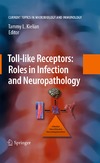The ability to remember an antigenic encounter for several decades, even for a life time, is one of the fundamental properties of the immune system. This phenomenon known as ''immunological memory,'' is the foundation upon which the concept if vaccination rests. Therefore, understanding the mechanisms by which immunological memory is regulated is of paramount importance. Recent advances in immunology, particularly in the field of innate immunity, suggest that the innate immune system plays fundamental roles in influencing immunological memory. Indeed, emerging evidence suggests that events that occur early, within hours if not minutes of pathogen or vaccine entry profoundly shape the quantity, quality and duration of immunological memory. The present volume assembles a collection of essays from leading experts that span the entire spectrum research from understanding the molecular mechanisms of innate immune recognition, to dendritic cell function, to the generation and maintenance of antigen-specific B and T-cell responses.
 |
|
О проекте
|
|
О проекте


